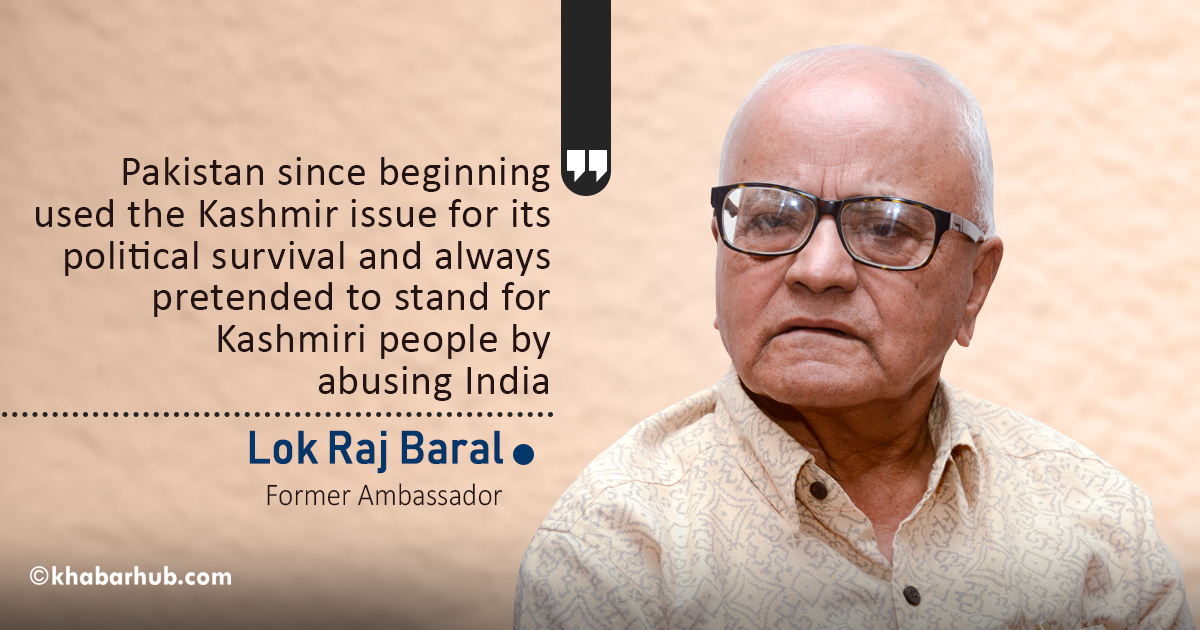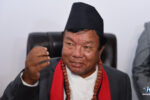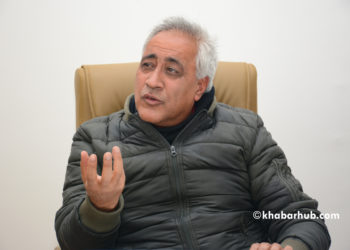Government of India in its historic decision (on August 5, 2019) scrapped the Articles 370 and 35-A by changing the administrative structure of Jammu & Kashmir (J&K) and ending the special status enjoyed by the state from 1954 onward.
By introducing the state reorganization bill, the Government of India has bifurcated the state into two new Union Territories (UTs) namely UT Laddakh and UT J&K. UT Laddakh will have no legislative assembly while UT J&K will have its own legislative assembly.
The decision has outplayed Pakistan because Kashmir was converted into a political agenda for the entire government, diplomatic and military agenda for fomenting anti-India sentiments in the state by infiltrating terrorists and militants to fight a proxy war with India.
Pakistan, in its desperate move to show solidarity with militancy in J&K, downgraded the diplomatic relations with India and also closed down all the trading relationship with the country. Both India and Pakistan have fought four wars and have engaged themselves in several armed conflicts on the issue of Kashmir besides Pakistan sponsored proxy war on India by infiltrating terrorists and actively supporting and participating in militancy in Jammu and Kashmir extending to rest of India.
Four wars that India and Pakistan fought are being listed here. First Kashmir war in 1947, operation Gibraltar launched by Pakistan soon converted into Indo-Pak war 1965, Indo-Pak War of 1971 though not fought directly on Kashmir but led to Shimla agreement of 1972 which limited issue of Kashmir as bilateral one. Likewise, the Kargil war of 1999 in which Pakistani troops infiltrated across the Line of Control (LoC) are the four major wars besides several other armed conflicts such as J&K insurgency, Siachen conflict, Sir Creek, maritime trespassing and others between India and Pakistan.
To take deep stock of the present situation which is unfolding between the two neighboring countries India and Pakistan, Khabarhub approached Prof. Dr. Lok Raj Baral, Political Scientist and former Nepali Ambassador to India, for his perspective on the issue. Excerpts:
What do you think to what extent Pakistan will react to India’s decision of scrapping the special status of Jammu & Kashmir? Will it take an abrupt turn to military conflicts between the two countries or heightened militancy in the region?
Kashmir emerged as a disputed region right after the division of India and Pakistan in 1947. The region has a majority population of Muslims. Before the British established their imperial rule, India used to have a number of princely states all across the country.
Kashmir, too, was a princely state. In the beginning, King of Kashmir Maharaja Hari Singh wanted to stay independent. Pakistan imposed the war a few weeks after independence by sending tribal lashkar (militia) from Waziristan (now called Khyber Pakhtunkhwa province) with a view to capturing Kashmir which was independent by then.
Though J&K was indivisible part of India geographically, the state never allowed Constitution of India and other laws of India to apply there all due to special status granted by Articles 350 and 35-A.
Maharaja Hari Singh was feeling helpless as Pakistan’s Pashtun tribal militia had also crossed the border of Kashmir and were marching towards Srinagar on October 22, 1947. In that difficult situation, Maharaj Hari Singh decided to be part of India followed which the Indian military repelled the Pakistan sponsored invasion on Kashmir.
However, the first war of Kashmir remained inconclusive in the sense that parts of Kashmir which is called Pok (Pak occupied Kashmir) was never returned to India after the instrument of accession was signed by Maharaj Hari Singh. This is how Kashmir became a disputed region.
And, it is so even today. Jammu and Kashmir of India was given a special status in 1954 by inserting an Article 370 to the Constitution of India. Sheikh Abdullah never wanted J & K to be part of India. He was against Kashmir being assimilated with the rest of India and never allowed the Constitution of India to apply fully in the state.
Moreover, Article 35-A gave a distinct identity to state as Indians living in other parts of India other than J&K could not settle down in the state and engage in any economic activities. Though J&K was an indivisible part of India geographically, the state never allowed the Constitution of India and other laws of India to apply there all due to the special status granted by Articles 350 and 35-A.
Right from the days of Bhartiya Jan Sangh (the earlier avatar of present-day Bhartiya Janata Party), the current ruling party of India had never supported the special status of J&K given by the Constitution of India. Shyama Prasad Mukherjee, the founder of Bhartiya Jan Sangh was strongly opposed to Article 370 seeing it as a threat of sovereignty, unity, and integrity of India.
He always wanted to repeal Article 370 and so were other leaders of the party. Shyama Prasad Mukharjee was arrested by the Sheikh Abdullah Government of J&K and he died in police custody in mysterious condition possibly due to police torture.
Nationalist forces such as Rashtriya Swyamsewak Sangh (RSS) and Bhartiya Janata Party (BJP) didn’t want anti-India forces to find shelter behind the special status given to Muslim majority state which proved right when militancy and terrorism grew in the state and cleared the region of Kashmir of non-Muslim population (comprising Hindus, Sikhs, Buddhists, and others).
It means that Bharatiya Janata Party was firm right from the beginning that Article 370 which guarantees special status to J&K is against sovereignty and integrity of India. Isn’t it so?
The Bharatiya Jana Sangh (also known as Jan Sangh or Akhil Bharatiya Jana Sangh) was formed in 1951 before Article 370 was introduced. The party continued to exist till 1977 when the internal emergency was imposed by the then Prime Mister of India Indira Gandhi to stifle the voices of democracy and opposition parties.
The Jan Sangh along with other opposition political parties such as Socialist Party and Bhartiya Lok Dal took part in protests during the state of emergency and against the dictatorship of PM Indira Gandhi. All of them came on the same platform to form another political party called Janata Party.
The newly formed party which incorporated all streams of political ideologies left, right and center won the general elections in 1977 by defeating the Congress Party and for the first time came into power under the leadership of PM Morarji Desai. Janata Party gave another Prime Ministers too like Charan Singh and Chandra Shekhar.
When the Janata Party was dissolved in 1980, the political group of Jan Sangh from within the Janata Party came out to form Bhartiya Janata Party (BJP) which is the current ruling party of India. The Bhartiya Janata Party once again raised the issue of the special status of J&K due to which in one country there are two sets of laws and two flags – one for India and another for J&K.
The BJP in its foremost political agenda raised the issue of Articles 370 and 35-A as being not only unconstitutional but also anti-India. Furthermore, Narendra Modi, though couldn’t muster the courage to scrap Articles 370 and 35-A in his first stint, fulfilled a declaration of party manifesto by ending the special status to state in his second term.
PM Modi himself has been questioning the duel provisions in the Indian constitution as to two parallel rules, two different constitutions and two flags in a single country. It is not just PM Modi and his party BJP who support this view, the great majority of Indian citizens too support scrapping of Articles 370 and 35-A.
However, minority view in a democracy must not be totally discarded. Since it was Prime Minister Pandit Jawaharlal Nehru from Indian National Congress (in short Congress) who introduced the Article 370 by giving special status to J& K, the Congress itself is divided on the issue.
Other opposition parties such as Bahujan Samaj Party, Biju Janata Dal, and YSR Congress Party have come out in support of Prime Minister Modi. As per the instruction of UNO (United Nations Organization), India always wanted to hold a plebiscite in the beginning when status quo was not changed but Pakistan never agreed to it fearing the reverse result and losing POK (Pakistan Occupied Kashmir).
Now seven decades have passed and the entire region has been in fire of radical Islam after forced killings of Non-Muslim population on both sides forcing them to migrate to different parts of India, issue of the plebiscite is irrelevant. After the Shimla agreement, Kashmir issue is purely bilateral in nature forbidding any international interference, even UNO cannot do much.
Pakistan has taken drastic step after Article 370 was scrapped by India. Pakistan has downgraded the diplomatic engagement with India by asking Indian High commissioner to leave and recalling the Pakistani High Commissioner in New Delhi to come back. Will it morph into a military conflict? How do you see?
Pakistan has already wedged war with India four times in 1947, 1965, 1971 and 1999. In all these wars, Pakistan was defeated. I don’t think in current political and economic condition, Pakistan can afford a war with India. However, there will be skirmishes at the local level while chasing and arresting local level militants and protestors. Even before the revocation of Article 370, this situation prevailed.
It will continue for some more time as militants and terrorists with the support of Pakistan will go for guerrilla war. Pakistan is reacting like this because it has since beginning used the Kashmir issue for its political survival and always pretended to stand for Kashmiri people by abusing India. In due course of time, both the countries will go for normal diplomatic relationship by exchanging their top diplomats at a mutual level.
But, Pakistan has planned to raise the issue in the UN. Will there be no effect on it?
Nothing will happen as all the five countries are maintaining studied silence on the matter. Only China has given a remark which is well-balanced not exactly against India. No country would dare to poke its nose in the matter as India has already warned against any interference by outside country in its internal affairs.
China doesn’t want to tease India because Chinese goods are doing great business in the Indian market. China does not want to increase hostility with India when the US is fighting a trade war with it. China wants to work with India. If China at all stands with Pakistan on this issue, the European Union and the US will come to back India and create more trouble for China. It is just to show friendship with Pakistan, China has given out a well-crafted statement and then went silent.
It means that the international community cannot do much in Kashmir.
Yes, the international community cannot do anything at all. Even if the matter is taken to the UN, nothing more than hours of debate and discussion will happen there. I will give you an example here. Issue of Indo-Pak war, 1971 was brought to the UN.
As many as 104 countries asked India and Pakistan to end the war against only 5 countries including the US who wanted the war to conclude with the result. A total of 11 countries including Nepal chose to remain neutral (or indecisive) on the issue. What was the result? Nothing, simply nothing.
Do you mean to say even the UN stays unconcerned on the whole issue?
Exactly, this is what I want to say. Russia never speaks against India, never ever. China has also spoken out of formality to hoodwink Pakistan. Other countries of Security Council such as the US and France have not spoken a word against India on this issue.
Currently, Nepal is in the Chair of SAARC (South Asian Association for Regional Cooperation). Should not Nepal speak on India-Pakistan relationship in the context of J&K? Is it necessary to stay neutral like the Indo-Pak war of 1971?
The political situation of 1971 was much more complex than that of today. When Bangladesh was to be born in 1971, Nepal had called it an internal matter of India. However, in the last moment, Nepal changed its stand and announced its neutrality probably because Bangladesh was going to be neighboring country much nearer in geography than Pakistan.
Guided solely by national interest, King Mahendra directed the Nepalese diplomat in UN to vote for neutrality in the midst of 104 votes cast against the birth of Bangladesh after partitioning Pakistan. Was it not a big issue? The then Prime Minister Kirti Nidhi Bista had favored Pakistan against India by saying that it was an internal matter of Pakistan.
However, Nepal had to change that stance due to an all-round relationship with India and just after few days of the formation of Bangladesh, Nepal gave recognition to it. Those were different days and different situations. Presently, the political situation is entirely different. We need not plunge ourselves into it.
Some Nepalese are of different views than yours. If Nepal can speak for a country like Venezuela located far away, then why is the government silent on India and Pakistan just located at our doors?
Why did Nepal speak in favor of Venezuela? We Nepali are like that, says Venezuelans casually. Prachanda had some issues with the US so he thought he would rattle the American administration by speaking for Venezuela. What do we get from Venezuela? Even
Venezuelan oil does not reach Nepal. American help is visibly present everywhere in the country in development projects of Nepal. We Nepalese are like that. When we speak we really don’t know why we speak. Nonetheless, Prachanda’s statement was not in good taste according to the standard of diplomatic fineness.
What will be the direct effect of Indo-Pak controversy and impending conflicts in Nepal?
Nepal is not affected by this controversy. We always talk about SAARC. To me, SAARC is long dead at least in the region of South Asia. Looking at ASEAN (Association of Southeast Asian Nations) and EU (European Union), SAARC was formed even after India was not very supportive of the idea.
Bangladeshi President Ziaur Rahman had proposed for it but India had some reservations for its success because countries of South Asia are locked in mutual hostility and political rivalry. We Nepalese also do not believe in India. So, SAARC exists just among Nepal, Bhutan, and Bangladesh. How can a regional organization like SAARC function when all the member countries are pitched against one another?
There was some relevance of SAARC before but it is no more relevant for the region. We see the problem even in the European Union – a group of such developed countries while SAARC is the regional grouping of all the poor countries. Nepal will have no effect due to Indo-Pak controversy. There may be some kind of polarization between Hindus and Muslims that too will fizzle out in due course of time and everything will be normal.
Nepal has nothing to fear from Indo-Pak tension in the present effect. Are you really sure?
Yes, I am sure. Being in the chair of SAARC, Nepal can simply advise two countries to sit together and talk. For Nepal, both India and Pakistan are friends. Even India has asked Pakistan to restore the normal diplomatic relations. Nepal cannot say more than this. To say something Nepal must be a powerful country.
Even if Nepal were a powerful country, what interest would it have served to meddle in the issue like this? Our border is also not connected with either Pakistan or Kashmir. Whatever effects the Kashmir issue will bring, it is for India to bear and manage. Hindu-Muslim conflict is not the issue in Nepal as it is in India.









Comment